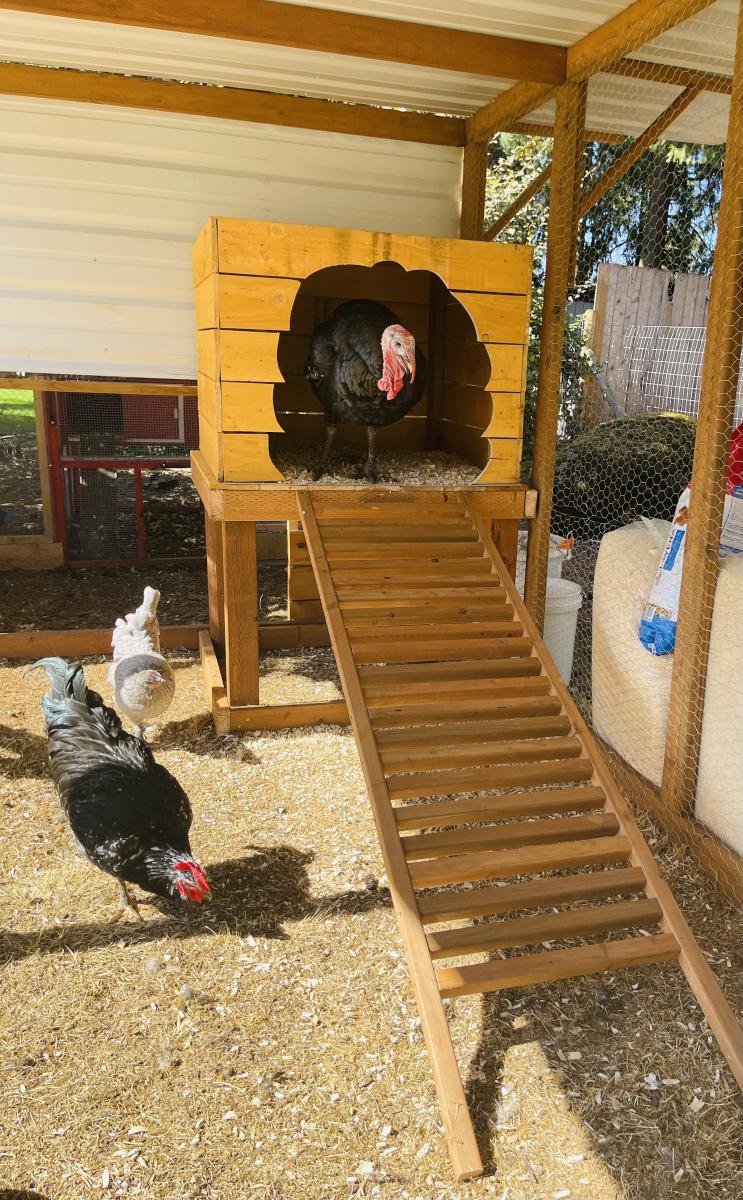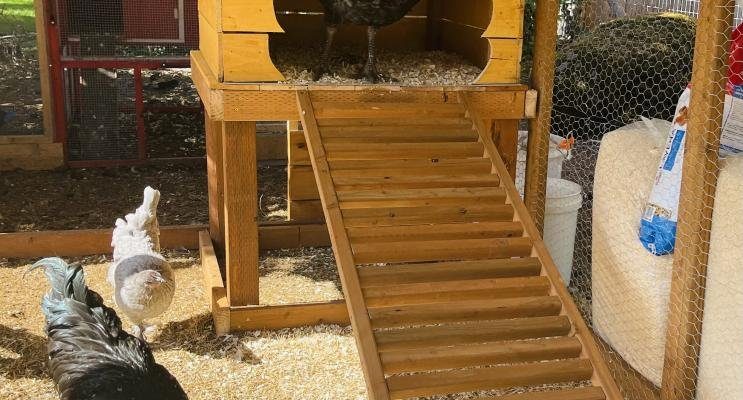
Setting up an ideal coop for turkeys can feel a little overwhelming, especially if you’re new to poultry. However, the good news is that with some careful planning and a bit of creativity, you can create a cozy space that your turkeys will love. Let’s dive into the essentials of the best housing and coop setup for these fascinating birds—think of it as building their very own turkey mansion!
Why Proper Housing is Essential for Turkeys
Honestly, providing turkeys with a proper living space is crucial for their overall well-being. Just like any other pets or livestock, if your turkeys aren’t comfortable, they won’t thrive. A well-built coop can help protect them from the elements, reduce stress, and minimize health issues.
Turkeys are particularly sensitive to extreme temperatures. In winter, they can suffer from frostbite if they don’t have appropriate shelter. Conversely, in summer, a coop that’s too hot can lead to heat stress. Plus, a secure housing setup helps keep predators at bay—think raccoons or hawks that might see your feathered friends as a tasty snack.
And let’s not forget about cleanliness. Keeping a clean space isn’t just about good housekeeping. It’s vital for preventing diseases. A well-structured coop facilitates easy cleaning, ensuring your turkeys stay healthy and happy.
Choosing the Right Location for Your Coop
Picking the perfect spot for your turkey coop is like selecting the right venue for a party: it can make or break the experience. Ideally, you want to find a place that’s well-drained and away from strong winds. Turkeys don’t like getting wet, so if you have an area that tends to pool water after rain, steer clear of that!
Another great factor to consider is proximity to food and water sources. Turkeys are social creatures, and they enjoy wandering around. By placing their home near their feeding area, you’ll encourage them to eat regularly without too much hassle.
Moreover, think about sunlight. Turkeys need some exposure to sunlight for their health, but not too much. A location with partial shade can help offer a balance.
Coop Size and Space Requirements
Turkeys are larger than typical chickens, so they require more space. Generally, your coop should provide at least 4 square feet per turkey inside. Now, if you’re planning to let them roam outside, make sure their run is at least 10 square feet per bird.
Imagine it like this: if you were crammed into a tiny room with three roommates, you wouldn’t be too comfortable, right? The same logic applies to turkeys. Space gives them room to stretch, flap their wings, and engage in natural behaviors.
Also, consider vertical space. Turkeys love to perch, so include some sturdy perches higher in the coop. This can help them feel safer and reduce boredom, particularly during long periods when they can’t go outside.
Materials for Building Your Coop
Selecting the right materials for your coop can be a game-changer. You want strong, durable materials that will withstand time and the elements. Here are some ideas to keep in mind:
- Wood: Good for framing, but ensure it’s treated or naturally rot-resistant.
- Wire mesh: Use heavy-duty wire to keep predators out. You might want to bury it a foot underground to prevent digging.
- Roofing materials: Consider shingles or metal roofs to keep the coop dry.
Don’t forget about ventilation! Turkeys can produce a lot of moisture, and without proper airflow, you might end up with a damp, unhealthy environment. Installing windows or vents at the top of the coop can help with this.
Essential Features of a Turkey Coop
Now that we’ve covered the basics, what are the must-have features for a turkey coop? Here are a couple of key things to include:
1. Nesting Boxes: Even though turkeys tend to lay eggs less frequently, providing well-placed nesting boxes encourages natural behaviors. Aim for one box for every 3 to 4 hens.
2. Roosting Areas: Turkeys love to roost. A couple of sturdy, high perches will keep them off the ground and help them feel safe.
3. Feeding and Watering Stations: Set up these stations at a comfortable height for turkeys. Regularly clean and refill them to keep everyone hydrated and fed.
You might be wondering what else could enhance their living conditions. Adding a dirt area for dust bathing can be a delightful bonus for turkeys, helping them keep their feathers clean.
Predator-Proofing Your Coop
Keeping your turkeys safe from predators is a primary concern. After all, you want them to be happy and healthy, not snack for a hungry raccoon! Here are steps you can take to protect your flock:
– Secure the Coop: Make sure all openings are covered with heavy-duty wire. It’s better to err on the side of caution and go with stronger materials.
– Close Up at Night: Nighttime is when many predators are most active. Lock your turkeys in their coop nightly to keep them safe.
– Use Motion Detectors: Installing motion-activated lights or alarms can help scare off unwanted guests.
By taking these precautions, you’ll create a safe haven for your turkeys and give them a fighting chance against the many dangers outside.
Maintaining Your Turkey Coop
Once your coop is set up, the work isn’t entirely done. Regular maintenance is key to ensuring a healthy environment for your flock.
Start with weekly cleanings. Remove old bedding, check for any signs of damage, and ensure feeding areas are clean. This helps to prevent disease and keeps your turkeys happy.
Also, consider seasonal checks. As temperatures change, inspect your coop for drafts in winter or overheating issues in summer. Some small adjustments can make a massive difference in comfort for your birds.
Lastly, monitor your flock for health issues. Healthy birds will show good energy levels, clear eyes, and clean feathers. If you notice anything off, consult a vet who specializes in birds.
Wrapping Up: The Cozy Turkey Home
Creating the best housing and coop setup for turkeys is about more than just building a structure—it’s about crafting a comfortable, safe haven for these fascinating creatures. With careful planning, attention to detail, and regular upkeep, your turkeys will flourish in their new home.
Choosing the right location, materials, and features can transform a basic coop into a cozy turkey mansion. Remember to keep their safety in mind and always be proactive in your maintenance. With these tips, you’ll not only keep your turkeys safe but also ensure they thrive and live happy, healthy lives. Enjoy your journey into turkey-raising; it’s sure to be a rewarding adventure!

